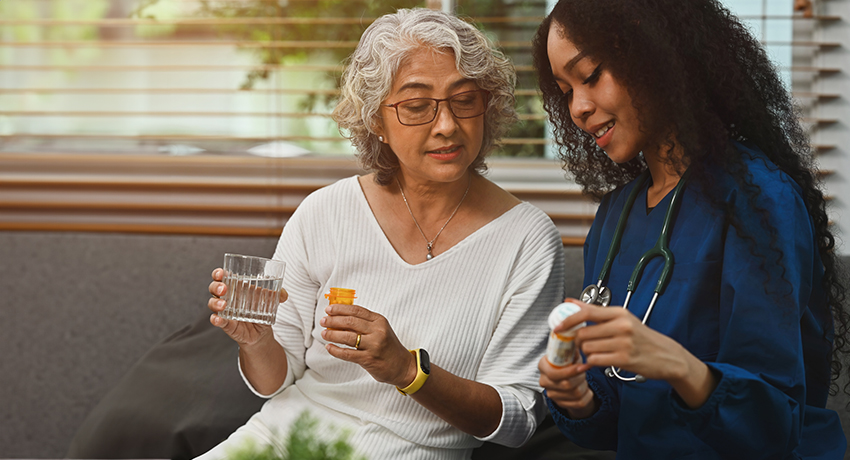What you put in your body can have just as much impact on your skin as what you put on it, especially when it comes to medications and sunlight. Because of the heat and the intensity of summertime ultraviolet (UV) radiation, it’s important to be aware of sun-sensitivity reactions.
What is sun sensitivity?

Many medications may cause sun sensitivity, even those we take regularly.
“Some medications can make your skin overreact when exposed to sunlight,” warns Pio Juan Lansangan, PharmD, clinical pharmacist supervisor at UT Physicians. “This side effect is known as sun sensitivity, or photosensitivity.”
Lansangan says that while sun sensitivity may be due to different factors, medications are a common cause.
Symptoms of sun sensitivity
Exposure to sunlight while using sun-sensitive medicines may cause mild to abnormally severe skin reactions, such as:
- Sunburn
- Skin rash
- Blisters
- Redness
- Discoloration
- Increased risk of skin cancer
Sun-sensitive medications
Sun-sensitive medications include creams, ointments, tablets, and capsules. The best way to know if a medication may cause sun sensitivity is by speaking with your doctor and pharmacist and reading prescription labels.
“Be aware of the warnings and side effects of your medications. It’s important to read every label every time,” said Lansangan.
Here’s a brief list of some medicines that have sun-sensitivity warnings. (Note: This is not a comprehensive list.)
Acne treatment
- Isotretinoin (Accutane)
- Retinol products
Allergy medication
- Loratadine (Claritin)
Antiarrhythmic
- Amiodarone
- Quinidine
Antibiotics
- Dapsone
- Doxycycline
- Fluoroquinolone medicines
- Ciprofloxacin (Cipro)
- Levofloxacin (Levaquin)
- Ofloxacin (Floxin)
- Sulfamethoxazole-Trimethoprim (Bactrim)
Antidepressants
- Amitriptyline (Elavil, Endep, Vanatrip)
- St. John’s Wort
Antifungal
- Griseofulvin
Antihistamines
- Promethazine
Autoimmune disorders
- Methotrexate
Blood pressure medication
- Furosemide
- Thiazide diuretics
- Hydrochlorothiazide (Microzide)
Diabetes medication
- Metformin
- Sitagliptin (Januvia)
- Sulfonylurea medicines
- Glipizide
- Glyburide
DMARD
- Hydroxychloroquine
Pain relief
- Nonsteroidal anti-inflammatory drugs (NSAIDS)
- Ibuprofen (Advil)
- Naproxen (Aleve)
Skin protection tips
Be sure to protect your skin while taking sun-sensitive medication, especially if you have to be outdoors.
Follow these tips:
- Avoid prolonged direct sun exposure.
- Wear long sleeves, long pants, and hats.
- Wear sunglasses.
- Use an umbrella for shade.
- Wear sunscreen with an SPF 30 and broad-spectrum UVA/UVB protection.
- Stay hydrated.
- Don’t use tanning beds.
“These are year-round precautions people should use to protect their skin, especially when taking sun-sensitive medication,” said Lansangan.
Anytime you’re given a new prescription, he recommends always having a detailed conversation with your doctor and pharmacist about the medication, including potential side effects such as sun sensitivity.


